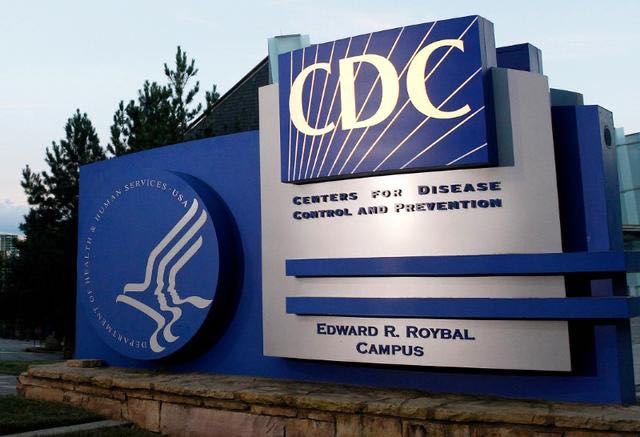


As the COVID-19 epidemic control situation in the US deteriorates, inconsistent statements from its government regarding the virus have thrown the public into confusion, displaying its lack of ability and readiness to tackle the threat.
In a public statement made during his visit to India on Tuesday, US President Donald Trump said that the coronavirus is very much under control in the US, and it’s a problem “that’s going to go away.” On the same day, White House economic advisor Larry Kudlow also noted that the US has already contained the virus.
Trump once again downplayed the risk at a press briefing Wednesday, saying, “Whatever happens, we’re totally prepared.”

However, other government officials took a different view, slamming such comments as “simplification and misleading.” Alex Azar, the administration’s secretary of Health and Human Services, struck a more serious tone, telling Congress, “We cannot hermetically seal off the United States to a virus, and we need to be realistic about that.”
The divergence of views between government officials regarding COVID-19 control reached boiling point on Tuesday, when Senator John Kennedy criticized acting Department of Homeland Security Secretary Chad Wolf for his ignorance of the virus during a tense grilling on the US response to the outbreak.
Wolf failed to answer virtually all of Kennedy’s questions, including how many people he believed would become infected, how many respirators and masks are available and how many would be needed for a wider outbreak. To make things worse, Wolf told the senator that a vaccine could be only a matter of months away, contradicting testimony from an earlier congressional briefing that it would take 12 to 18 months.
The US failure in taking sufficient measures to contain the H1N1 outbreak in 2009-2010 and its slow response to natural disasters such as Hurricane Katrina have cast doubt on the abilities of the US government emergency response system.
“I cannot believe that our top national security leader could be so ignorant about the coronavirus. As an ordinary citizen, I don’t even know who I should believe. The US’ barely satisfactory performance in the battle against 2009 swine flu seems to have made little progress a decade later,” commented a netizen named Thomas Hudson.
Similar farcical episodes have been taking place in US politics since the coronavirus outbreak began, displaying the US government’s ignorance and inability to tackle the crisis. Instead of coming up with a solid and detailed plan, US politicians have spent their time pointing fingers at China, smearing the Communist Party of China and Chinese political system, which have mobilized the entire nation in the fight against the novel coronavirus.
Ironically, one month after some US government officials and several media outlets slammed China for locking down the city of Wuhan, officials from the Centers for Disease Control and Prevention (CDC) issued the first US federal quarantine order since the smallpox outbreak in the 1960s. Almost 1,000 Americans have now faced or are currently facing mandatory 14-day quarantines.
The coronavirus epidemic control situation in the US is far less promising than is being portrayed by President Trump. Secretary Azar noted that the country has a stockpile of 30 million N95 surgical masks, but that 300 million would be needed to protect health workers in an outbreak. Even worse, the CDC warned that a larger spread of the COVID-19 coronavirus across the US could overwhelm emergency rooms and cause shortages of crucial medical supplies, especially when the seasonal flu, with more than 26 million cases and many hospitals stretched thin, is at its peak in the country.
"It's not so much a question of if this will happen anymore, but more really a question of when it will happen — and how many people in this country will have severe illness," warned Dr. Nancy Messonnier of the CDC.

 Award-winning photos show poverty reduction achievements in NE China's Jilin province
Award-winning photos show poverty reduction achievements in NE China's Jilin province People dance to greet advent of New Year in Ameiqituo Town, Guizhou
People dance to greet advent of New Year in Ameiqituo Town, Guizhou Fire brigade in Shanghai holds group wedding
Fire brigade in Shanghai holds group wedding Tourists enjoy ice sculptures in Datan Town, north China
Tourists enjoy ice sculptures in Datan Town, north China Sunset scenery of Dayan Pagoda in Xi'an
Sunset scenery of Dayan Pagoda in Xi'an Tourists have fun at scenic spot in Nanlong Town, NW China
Tourists have fun at scenic spot in Nanlong Town, NW China Harbin attracts tourists by making best use of ice in winter
Harbin attracts tourists by making best use of ice in winter In pics: FIS Alpine Ski Women's World Cup Slalom
In pics: FIS Alpine Ski Women's World Cup Slalom Black-necked cranes rest at reservoir in Lhunzhub County, Lhasa
Black-necked cranes rest at reservoir in Lhunzhub County, Lhasa China's FAST telescope will be available to foreign scientists in April
China's FAST telescope will be available to foreign scientists in April